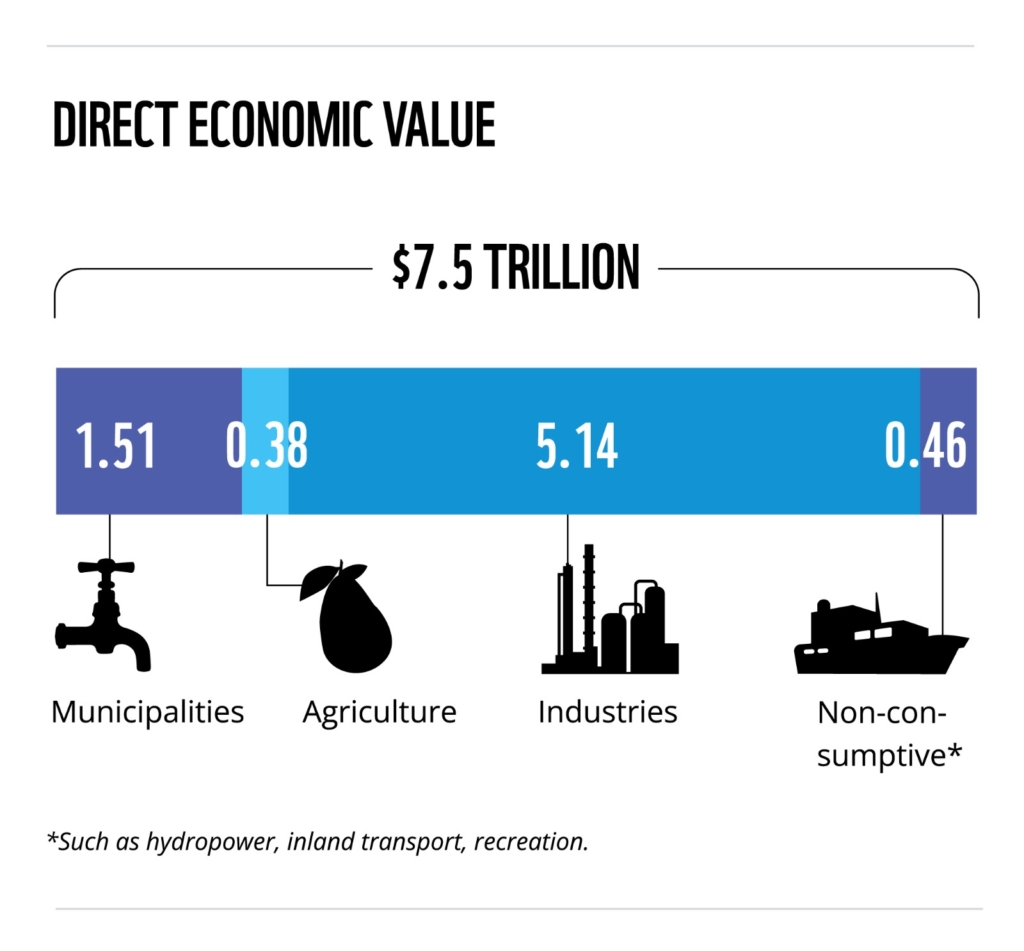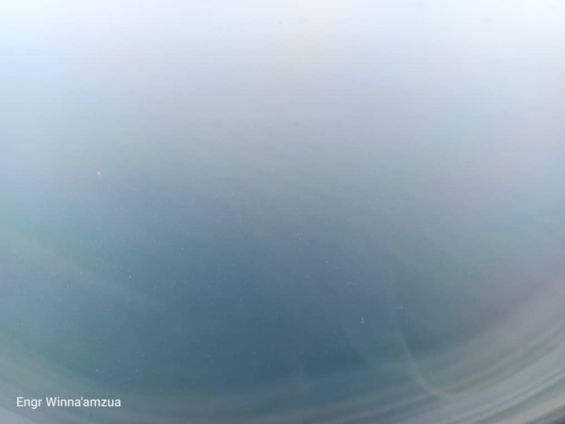In a newly published report released on World Food Day, the World Wide Fund (WWF) is issuing a stark warning about the global water crisis, revealing its devastating impact on human and planetary health.
Titled "The High Cost of Cheap Water," the report uncovers a troubling reality: the annual economic value of water and freshwater ecosystems is estimated at a staggering $58 trillion, equivalent to 60% of global Gross Domestic Product (GDP).
According to the report, since 1970, the planet has lost one-third of its remaining wetlands, while freshwater wildlife populations have, on average, plummeted by 83%. This disastrous trend has led to growing numbers of people experiencing water shortages and food insecurity, as rivers and lakes have faced extremes of drought and flooding, pollution has increased, and freshwater sources, like fisheries, have diminished.

The water crisis is also compounding economic pressures and undermining global efforts to reverse nature loss and adapt to worsening climate change impacts. It exacerbates issues like droughts, extreme floods, and rising sea levels.
Stuart Orr, WWF Global Freshwater Lead, emphasizes the importance of water and freshwater ecosystems by stating, water and freshwater ecosystems are not only fundamental to our economies, they are also the lifeblood of our planet and our future.
“We need to remember that water doesn’t come from a tap – it comes from nature. Water for all depends on healthy freshwater ecosystems, which are also the foundation of food security, biodiversity hotspots and the best buffer and insurance against intensifying climate impacts. Reversing the loss of freshwater ecosystems will pave the way to a more resilient, nature-positive and sustainable future for all,” he said.
The report highlights several instances to illustrate the crisis, such as the drying of the Rio Grande/Rio Bravo (RGRB) in the U.S. and Mexico due to extensive human water withdrawals, worsened by climate change. The RGRB supplies water to over 6 million people in the U.S. and 10 million people in Mexico. Without action, a 25% loss of river flows could be seen in parts of the RGRB basin by 2050, causing severe consequences for people, wildlife, and businesses.

Michele Thieme, WWF Deputy Director, Freshwater, underlines the urgency to act, stating, the alarming impacts from droughts, floods, decline of critical species, and water availability for human use and agriculture are staggering.
“There is still an opportunity to lessen and even prevent these impacts from causing further acute harm, but we must take action now to safeguard these vital life-supporting ecosystems.”
The report reveals that direct economic benefits, including water consumption for households, agriculture, and industries, total a minimum of $7.5 trillion annually. Unseen benefits, such as water purification, enhanced soil health, carbon storage, and protection from extreme floods and droughts, are seven times higher at approximately $50 trillion annually. However, the degradation of freshwater ecosystems is endangering these values and undermining progress towards the UN Sustainable Development Goals.
To tackle the global water crisis, WWF calls for increased investment in sustainable water infrastructure by governments, businesses, and financial institutions. WWF emphasizes the importance of recognizing freshwater ecosystems as natural infrastructure capable of addressing both the climate change and nature loss crises. Governments are urged to join the Freshwater Challenge, a country-led initiative aimed at restoring degraded rivers and wetlands, while businesses are called to transform their approach to water and collaborate on building more resilient river basins.
The report concludes that by reversing the ongoing loss of freshwater ecosystems, the world can move towards a more sustainable, nature-positive future. As the water crisis deepens, the need for urgent action becomes increasingly evident.
Latest Stories
-
Dreams FC trainer Karim Zito sets sights on defending MTN FA Cup
1 second -
Dumsor: Mahama the only President to superintended ‘dum dum’ for 4 years – Opoku Prempeh
10 mins -
Burnley sign partnership deal with fan-backed scouting platform Nordensa
33 mins -
Akesse Brempong, MOG Music, Afronita, Dope Nation to perform at Nsoromma Season 6 Grand Finale
37 mins -
Hopeson Adorye to form ‘Jail Them’ advocacy group
2 hours -
Shatta Wale once cried and knelt to apologise to Mahama – Dr Lawrence Tetteh
2 hours -
Former UK Prime Minister Boris Johnson turned away from polling station after forgetting photo ID
2 hours -
Nigeria soldiers face trial for deadly air strike ‘mistake’
2 hours -
Akufo-Addo, Otumfuo to commission Kumasi International Airport on May 10
2 hours -
PWDs who gain admission into tertiary institutions will be prioritised with government scholarships – Bawumia
2 hours -
Strongman regrets involving Fella Makafui in Medikal feud
2 hours -
NPP must unite now or perish later – Ameyaw-Akumfi warns
2 hours -
Fuel price adjustment: petrol surges to GH₵15.22, diesel falls to GH₵14.65
2 hours -
Kojo Golden nominated for Afrobeat Artiste of the Year at Ghana Music Awards USA
3 hours -
Ford Foundation partners foster collaborative solutions for host Community Development Trusts implementation in Nigeria
3 hours

